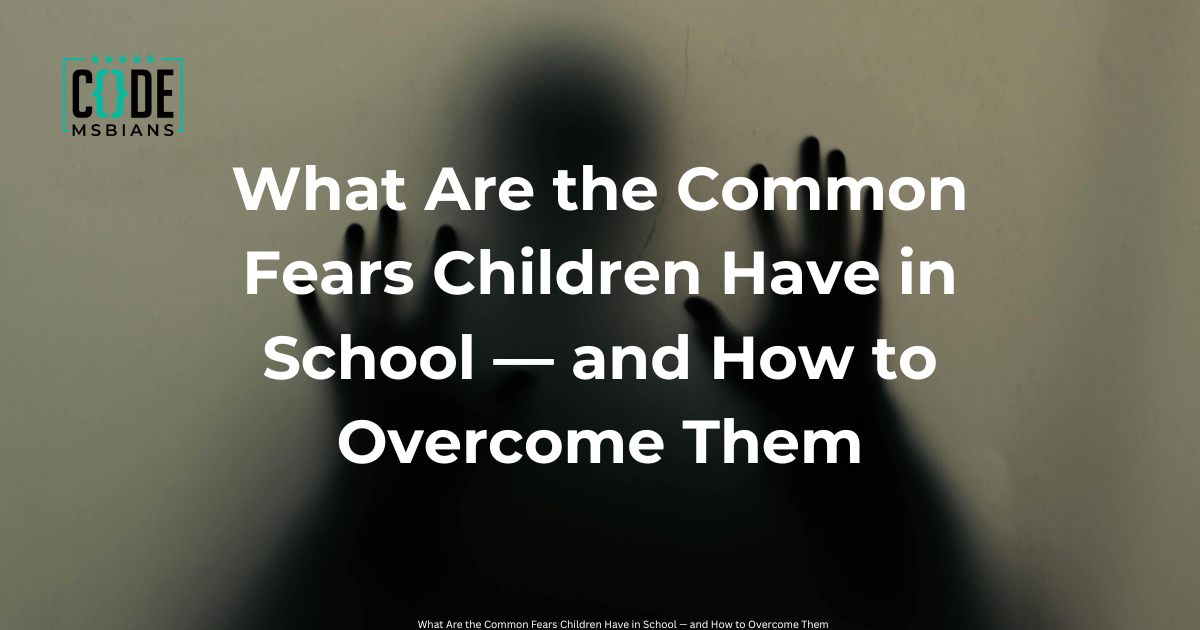Starting school can be exciting, but it also brings new challenges — especially common child fears.
From elementary to high school, children of all ages often face concerns that affect their confidence and learning.
Understanding these common fears of children helps parents and teachers provide the right support.
In this guide, we will explore the common child fears faced by students at different school stages and share useful tips to help children overcome them more easily.
Why are children afraid of school?
Fear is a natural part of growing up. School is a new environment full of unknowns — new friends, tests, rules and expectations. Sometimes fears can be mild and temporary, and sometimes more intense, affecting a child’s well-being.
Common fears at different school levels
1. Fear of elementary school
Fear of being separated from parents or caregivers
Anxiety about making friends or being accepted
Fear of giving the wrong answer in class
Anxiety about new routines and rules
2. Fear of middle school
Fear of bullying or rejection by peers
Pressure to perform well academically
Anxiety about fitting in socially
Anxiety about physical changes and self-image
3. Fear of high school
Fear of failure and uncertainty of the future
Stress from exams and workload
Social pressure, including relationships
Anxiety about independence and responsibility
How to help your child overcome school fear
1. Open communication
Encourage your child to share their worries. Listen without judgement and validate their feelings.
2. Build confidence gradually
Celebrate small successes and efforts. Help them prepare for tests and social situations.
3. Create supportive routines
Regular sleep, meal, and study habits reduce anxiety.
4. Teach problem-solving skills
Help them brainstorm solutions to common challenges they face at school.
5. Involve teachers and counselors
Don’t hesitate to approach school staff for additional support or advice.
When to seek professional help
If fears persist and interfere with daily life, consider consulting a child psychologist or counselor.
Final thoughts
Understanding common fears children have at school and addressing them with care and patience can make a huge difference in your child’s happiness and success. A supportive partnership between teachers, parents, and students can foster a confident and safe learning environment.




